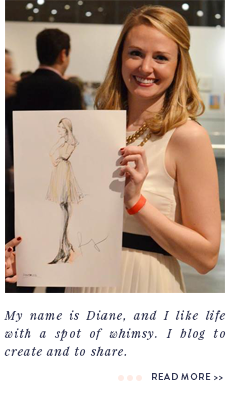2013 has definitely become the year of the Netflix Original Series. House of Cards, Arrested Development and now Orange is the New Black have been met with incredible critical praise, Emmy nominations, and, most importantly to Netflix, increased viewership with each new release (Hemlock Grove being the anomaly here, but every company has to have a black sheep, right?!).
We care about this because it makes all TV better. In Orange's case, it also tells stories that we rarely, if ever, see on television and in movies. Orange is based on Piper Kerman's memoir of the same title, documenting her year in a women's federal prison. The show is adapted for TV by Jenji Kohan, the creator and executive producer of Weeds. Taylor Schilling plays Piper Chapman, based on Kerman's real life experiences, as a waspy 30-something sentenced to 15 months in an upstate New York women's correctional facility. As the pilot episode unfolds, we discover how she got there: as a wayward post-grad, Piper entered into a relationship with Laura Prepon's (Donna from That 70s Show) Alex, a drug smuggler who swept Piper into that world for awhile. Ten years and an engagement to Jason Biggs' character later, Piper is indicted.
But after that first episode, the best part of the show emerges: through well-deployed flashbacks, each episode focuses on one or more of the other women with whom Piper shares her time and how they came to be there. I'm going to share what Tom & Lorenzo said about the season, because it's so eloquent:
"...The result is a story about choices and about the losses that come with bad ones. This is why it’s such a good show and why it sticks with you for days; because there isn’t an adult alive who can’t understand how hard it is to make choices and how devastating it is when those choices backfire and the punishments come.
But, in some ways, more importantly, this show isn’t just about general, universal truths. These are clearly and specifically women’s stories; about the choices women have to make in this world and about the millions of different ways the world conspires to rob women of their agency or hold them back from their potential. This is not to say that every character is an innocent flower and merely a victim. No, these are difficult, hard women; and their choices are not always easy to watch, but they are almost always understandable and heartbreaking.
But digging down even further, it’s clear to us that the strength of the tale isn’t that it’s universal and isn’t even that it’s women-specific, but that it tells the stories of the types of women who don’t get their stories told in our culture: black women, Hispanic women, fat women, butch women, bi women, old women, immigrant women, uneducated women – and even a trans woman’s story. When the season is done, you will be astonished at the vast range of women you’ve been exposed to and if you reflect on it, will probably be a little depressed that such stories are so rare in our culture." - via Tom & Lorenzo
As you might imagine about a story set in a prison, it contains strong language, sexual encounters, and some tough scenes to watch for one reason or another, but powerful, beautifully-acted stories emerge. 13 episodes currently await you on Netflix, and the show has already been renewed for a second season in 2014.
Happy Viewing!
xo. di.
*image 1,2,3-6,7





































































